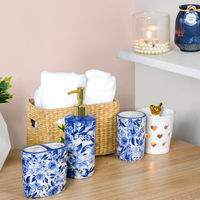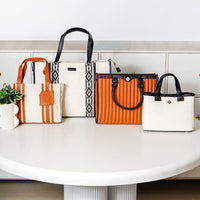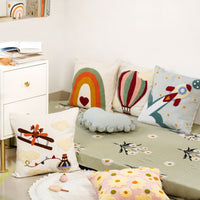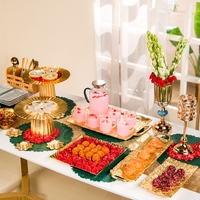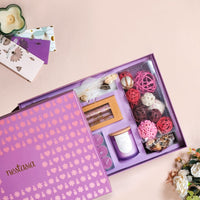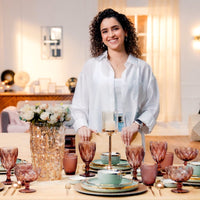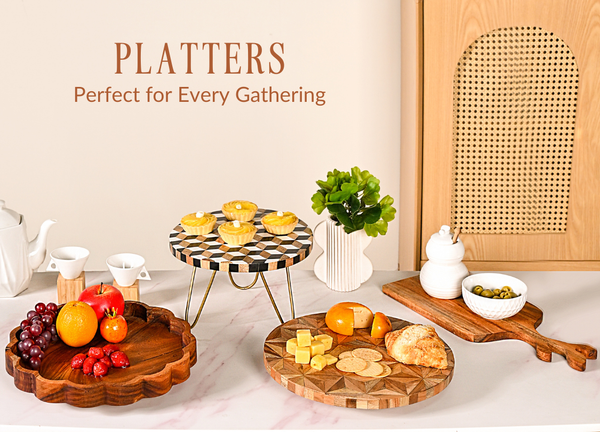Ever wondered why choosing a present brings a special feeling, or why receiving one warms your heart? It’s far more than just exchanging items. Gifting is a fundamental part of human behaviour, a cherished ritual deeply woven into our relationships. The simple act of giving and receiving a gift holds immense power, sparking emotions and forging connections that transcend the material.
From ancient traditions to modern celebrations, gifts have always played a unique role in human interaction. They serve as tangible tokens of appreciation, celebration, and even apology, speaking a silent language of care. This deep-seated practice reveals much about our desires to connect, to show we care, and to create moments that linger long after the wrapping paper is gone.
Let’s uncover the fascinating psychology behind this universal practice.
The Feel-Good Chemistry Of Giving
It’s true – generosity is good for us, right down to our brain! When we give a gift, our brains often release a delightful mix of neurotransmitters that create feelings of joy and contentment. Think of serotonin, our "feel-good chemical," and oxytocin, the "bonding hormone."
Neuroscience research consistently shows that both giving and receiving activate the brain's reward centres. Studies, such as those by Elizabeth Dunn at the University of British Columbia, highlight how prosocial behaviour actions that benefit others trigger the release of dopamine, serotonin, and oxytocin. This leads to what psychologists refer to as a "helper's high." Our brains are wired to find this rewarding, encouraging a beautiful cycle of generosity.
That burst of happiness when you see a loved one's face light up? That's your brain acknowledging a successful connection. It's a clear sign of how our internal chemistry supports our relationships, making giving an enriching experience for everyone involved. The happy hormone release underscores the deep biological roots of our desire to connect through gifts.
Gifts That Build Bonds And Make Memories
Beyond the immediate rush of good feelings, gifts are crucial for strengthening relationships and creating lasting memories. A gift is never just an item; it’s a tangible symbol of thought, appreciation, and care. It’s a powerful, non-verbal way to express feelings that words might miss.
When you give, you’re offering a piece of your time, your consideration, and your understanding. This naturally reinforces bonds. Consider a personalised gift, like a custom-engraved piece of jewellery or a handcrafted photo album. It speaks directly to who someone is, showing you truly "see" and value them. This recognition deepens appreciation and connection.
Psychologists agree that showing genuine understanding through a gift significantly strengthens relationships. Research from institutions like the University of Bath suggests personalised gifts create unique emotional responses, boosting recipients' self-esteem and making them feel more cherished.
These exchanges also become anchors for our memories. Positive emotions from a gift moment link directly to the gift itself. Later, seeing or thinking about that memorable gift can instantly bring back those cherished feelings and shared moments. It’s why some items become treasured keepsakes, holding sentimental value far beyond their price, constantly reminding recipients of the giver's thoughtfulness and connection.
Unspoken Rules Of The Return Gift
Gifting isn't always a one-way street; it often involves a natural dance of give-and-take. The idea of a return gift beautifully illustrates this psychological principle. When we receive something, there's a pleasant, inherent desire to reciprocate. This feeling isn't about obligation; it's a fundamental way we nurture balance and harmony in our connections. Think of those cute phone charms given out as party favours, or small tokens exchanged after a big celebration. These common gestures playfully affirm those ties.
This principle, often called reciprocal altruism, suggests that giving creates a subtle expectation of later reciprocation. It builds a mutually beneficial cycle that deepens trust and cooperation. As social psychologist Robert Cialdini points out, reciprocity is a core influence on human behaviour, fostering a sense of indebtedness that encourages ongoing interaction.
It’s a subtle yet powerful way we ensure fairness and continuity, weaving lasting connections from individual gestures. It's truly about continuing the beautiful flow of generosity that keeps relationships vibrant and strong.
Utility Versus Emotion In Gifting
Not all gifts create the same psychological impact. There's a clear difference between giving for pure utility and giving for emotional connection. A utilitarian gift might be practical, something truly needed. While useful, it might not always spark the same deep emotional resonance as a gift chosen for its emotional appeal.
An emotion-first gift is picked specifically to evoke joy, nostalgia, comfort, or a sense of being understood. This is where personalised gifts and unique gifts truly shine. They go beyond fulfilling a need; they speak to the recipient's personality, passions, or shared experiences. A custom-engraved item or something handmade often carries more emotional weight than a generic one, signalling extra thought and effort.
Consumer psychology research often indicates that the care in choosing a gift matters more than its monetary value in fostering happiness. Givers for close recipients often favour emotional (hedonic) gifts over purely practical ones. When considering gift ideas, focusing on the emotional return, not just practicality, can truly change your gesture's impact.
Understanding Gift Impact By Type
Understanding the difference between emotional and utilitarian gift ideas helps you choose with purpose. Here’s a look at common gifts and their typical impact:
Gifts for Emotional Impact:
Candles: These offer a sensory experience. Their scents can trigger memories, promote relaxation, and set a mood. Scent is powerfully linked to emotion and memory in the brain, making a candle a truly immersive and comforting gift for creating a feeling.
Soft Toys: Often comfort objects, soft toys offer security, companionship, and warmth. Holding something soft can even trigger oxytocin release, fostering feelings of trust and bonding. They provide emotional support, regardless of age.
Cushions: These bring comfort, cosiness, and personal style to a space. While functional, their main impact comes from enhancing aesthetics and creating a welcoming, personalised environment. They signal a wish for the recipient's comfort and personal touch.
Gift Cards: Surprisingly, gift cards can be emotional when given thoughtfully. They offer freedom of choice, empowering the recipient to get exactly what they want or need. This autonomy shows respect for their preferences, reducing stress and leading to true satisfaction.
Gifts for Utility and Practicality (with a thoughtful touch):
Jewellery: Beyond simple adornment, jewellery serves as a personal statement, completing an outfit and expressing individual style. The true thoughtfulness shines when you choose a design that perfectly matches the recipient's unique taste, showing genuine attention to their presentation and preferences.
Water Bottle or Sipper: A highly practical item for health and daily use. Gifting a quality one shows care for the recipient's well-being and hydration habits, becoming a constant, useful reminder of your thoughtfulness.
Home Decor: Items like a vase, a decorative tray, a stylish planter, or a unique wall accent enhance living spaces. While they beautify, their primary impact is on the environment. The thoughtful choice here lies in selecting pieces that align with the recipient's existing style, helping them craft their perfect space.
Mirror: A mirror is a functional item for daily routines, providing a clear reflection. This gift becomes thoughtful when it addresses a specific need or helps equip someone's personal space with useful tools. For a truly thoughtful present that blends beauty with everyday function, an aesthetic mirror by Nestasia makes a stylish addition to any space.
Gift Hampers: These are all about presentation and curation, offering a delightful collection of items within a beautifully arranged package. A gift hamper makes the unboxing experience special, building anticipation. Hampers can feature a range of products, from practical assortments (like gourmet food items or office supplies) to emotionally focused collections (such as a self-care spa set or a cosy tea selection). The thoughtfulness here lies in the collection's cohesion and value, providing a ready-to-enjoy experience for the recipient.
Beyond The Occasion For Lasting Impact
While holidays and birthdays are popular times for gifting, the psychology of giving reaches far beyond specific dates. A spontaneous gift, given "just because," can sometimes have the deepest emotional impact. It’s unexpected and feels truly selfless, reinforcing that the relationship is valued independently of any occasion. These gestures can trigger a strong release of happy hormones, solidifying them as truly memorable gifts.
Ultimately, whether grand or small, the act of giving is a powerful way to connect. It affirms relationships, builds memories, and expresses our care. Understanding this rich human behaviour transforms gifting from a simple task into a deeply meaningful opportunity to connect on a deeper, more fulfilling level.
So, the next time you're choosing a present, remember the invisible threads you're weaving. It's an opportunity to do more than just exchange an item; it's an opportunity to build bridges of feeling, reinforce bonds, and make someone's day truly brighter. The most wonderful gifts aren't just given; they're truly felt.
As you consider your next thoughtful gesture, remember the profound joy that comes from true connection. May your next gift be a beautiful expression of the heart.




